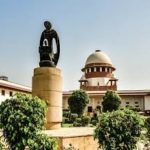The petitioner, Ravinder Singh Sidhu, was the Managing Director of KID Infrastructure and Developers Limited (‘KIDL’). He sought an order from the Supreme Court to club and transfer multiple FIRs registered against him in different States to a single competent court in Panchkula, Haryana.
Initially, the petitioner sought consolidation of all 64 FIRs across 10 States into one district within each respective State, an alternative prayer to an earlier rejected similar request.
There are 64 FIRs registered across 10 States: Punjab (23), Madhya Pradesh (2), Haryana (6), Gujarat (4), Chhattisgarh (1), NCT of Delhi (1), Uttarakhand (5), Rajasthan (5), Uttar Pradesh (15), and Himachal Pradesh (2).
Out of these, trial is concluded in some cases, with three convictions and two acquittals recorded, and cancellation reports in two cases4. 15 cases are at the evidence stage and 21 cases have charge-sheets filed.
The FIRs primarily involve offences under Sections 406, 420, 465, 467, 468, 471 read with Section 120B, 34, 263, 114 of the Indian Penal Code, 1860 (IPC).
Local Acts of the States are also invoked, such as the Gujarat Police Act, the Haryana Protection of Interest of Depositors in Financial Establishment Act, 2013, the Prize Chits And Money Circulation Schemes (Banning) Act, 1978, the Madhya Pradesh Nikshepakon Ke Hiton Ka Sanrakshan Adhiniyam, 2000, and the Uttarakhand Protection of Interests of Depositors (in Financial Establishments) Act, 2005.
The allegations relate to floating two schemes for allotment of developed land with promises of repayment with higher returns (15 to 20 percent). KIDL’s attempt to register as a Collective Investment Scheme (CIS) was rejected by SEBI.
◦The petitioner has been in custody since 11.10.2018. The States involved in the writ petition have not objected to the alternative prayer for consolidation.
Law Involved
Writ Petition (Criminal) No. 394 of 2024 was filed seeking the clubbing and transfer of FIRs.
Sections 406 (criminal breach of trust), 420 (cheating), 465 (forgery), 467 (forgery of valuable security), 468 (forgery for purpose of cheating), 471 (using forged document), 120B (criminal conspiracy), 34 (common intention), 263 (fraudulent or dishonest use of weights or measures), 114 (abettor present when offence is committed) of the Indian Penal Code, 1860 (IPC).
Various local Acts of the States concerning protection of depositors’ interests and prize schemes.
The principle of multiplicity of proceedings not being in larger public interest, particularly when dealing with local Acts.
The Court’s power under Article 32 read with Article 142 of the Constitution of India to pass orders to do complete justice.
Reference to judicial precedents regarding clubbing of FIRs: Radhey Shyam v. State of Haryana and Ors. (2022 SCC OnLine SC 1935) and Abhishek Singh Chauhan v. Union of India and Ors. (2022 SCC OnLine SC 1936).
Section 161 of the Code of Criminal Procedure, 1973 (CrPC), concerning statements recorded by police, which will treat subsequent FIRs as statements under this section once clubbed.
Section 173 of CrPC for filing supplementary charge-sheets.
Reasoning
The Court entertained the petition considering the special facts and circumstances of the case, especially since the States involved did not object to the alternative prayer for consolidation.
The Court acknowledged that the multiplicity of proceedings is not in the larger public interest.
It clarified that if the first FIR in a State is registered under a general law and not a special enactment, subsequent FIRs in that State registered under a special law (or related to it) can be clubbed and tried under the special law by a Special Court.
The primary reason for allowing the clubbing is to avoid repetitive investigations and trials across multiple jurisdictions for essentially the same alleged criminal conspiracy involving the same modus operandi.
The Court exercised its powers under Article 32 read with Article 142 of the Constitution to ensure complete justice and efficient legal process.
The decision aims to ensure that the investigating officer can file supplementary charge-sheets based on material collected from all clubbed FIRs.
Holding
The Supreme Court allowed the writ petition8.
It directed that for each of the involved States (Gujarat, Haryana, Himachal Pradesh, Madhya Pradesh, Punjab, Rajasthan, Uttar Pradesh, and Uttarakhand), one specific FIR will be designated as the ‘principal FIR’.
All subsequent FIRs in each respective State will be treated as statements under Section 161 CrPC in relation to the principal FIR.
The investigating officer in the criminal case arising out of the principal FIR in each concerned State is permitted to file supplementary charge-sheets after collating all records concerning other FIRs that have been clubbed.
The clubbed FIRs and the concerned criminal cases will be transferred and merged with the principal FIR and proceeded with in accordance with law.
The Court also directed that if bail is granted in connection with the principal proceeding/criminal case, this bail must ensure to the petitioner’s favour in the other FIRs now clubbed as well. However, if the principal FIR is limited to an IPC offence, but subsequent FIRs contain allegations attracting special enactments or other IPC offences, the petitioner is entitled to seek fresh bail for those specific offences.
The order regarding clubbing does not apply to Chhattisgarh and NCT of Delhi, as there is only one case in each state.
Ravinder Singh Sidhu V. State Of Punjab And Others
Supreme Court: 2025 INSC 727: (DoJ 19-05-2025)






